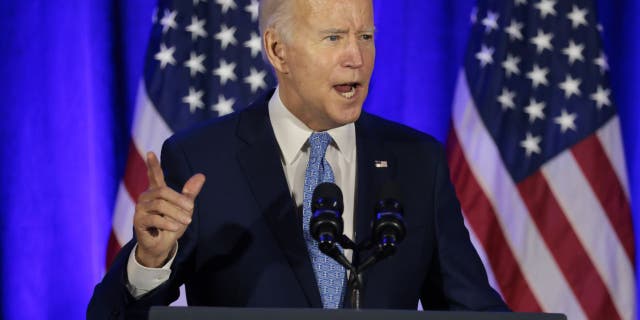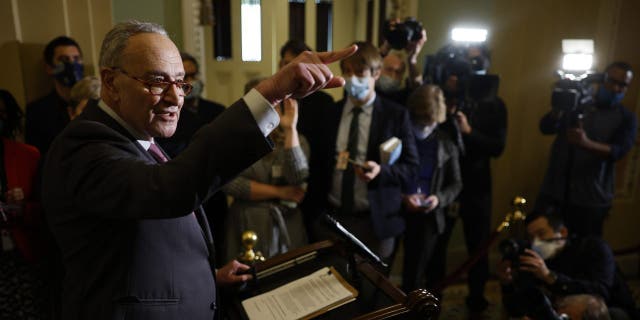Manchin sparks uproar within Democratic party
Fox News Congressional correspondent Chad Pergram with the latest on ‘Your World’
With 10 surprise words uttered on “Fox News Sunday,” Sen. Joe Manchin became both the target of deflating ire from his Democrat colleagues and a singular example of party-bucking courage to his Republican friends across the aisle.
Responding to a question from Bret Baier about the Build Back Better Act, Manchin declared, “I cannot vote to continue with this piece of legislation,” effectively ending all hopes for successful passage of President Joe Biden’s third key initiative before the Christmas recess.
Up until Manchin’s declaration on Sunday, the Biden administration had been on a successful roll with regard to enacting key components of President Biden’s agenda with the passage of the American Rescue Plan Act of 2021 last March and the bipartisan infrastructure bill that was signed into law this past November. Taken together, these two bills represent one of the largest investments in physical infrastructure, direct state and local government aid, as well as tax cuts for working families in this country.
The Build Back Better Act, as written, would make permanent many of the key programs included in the original Rescue Act, while also expanding access to quality and affordable health care, investing in housing, and funding to tackle the climate crisis.
President Joe Biden speaks during the holiday celebration for the Democratic National Committee in Washington on Dec. 14, 2021.
(Oliver Contreras/Sipa/Bloomberg via Getty Images)
From the start of BBB negotiations, it became clear that the climate provisions would be a tough sell for Manchin, a Democrat who represents one of the few coal-producing states in the country. Moreover, former President Donald Trump won the Mountaineer State by nearly 40% in 2020 and as Manchin himself said just yesterday during a local radio interview with MetroNews, “Well, guess what, I’m from West Virginia. I’m not where they’re from they can just beat the living crap out of people and think they’ll be submissive.”
Over the summer, it was widely reported that Manchin had proposed a $1.5 trillion plan that would raise both the corporate and high income tax rates as well as provide some level of means testing with regard to the health care, child care and education provisions.
And while Manchin’s goalposts in his original proposal are less than the approximately $2.2 trillion package passed by the House of Representatives back in November, they provide a core framework for actually advancing many of the key elements backed by all Democrats in the House and Senate, Manchin included.
In a statement yesterday, Senate Majority Leader Chuck Schumer has indicated he will put the $1.7 trillion Senate version of the bill up for a vote when Congress returns in January. What Manchin has already agreed to with his framework from over the summer and what he reiterated last week to the White House is currently not that far off, with billions committed to funding education, housing and combating climate change.
Senate Majority Leader Charles Schumer talks to reporters at the U.S. Capitol on Dec. 14, 2021.
(Chip Somodevilla/Getty Images)
Senate Democrats should agree to Manchin’s framework and work with their colleague from West Virginia on a compromise that would provide means testing for an extension to the widely popular Child Tax Credit set to expire this month. New data from the U.S. Census Bureau has shown that “overwhelmingly, people who have received the child tax credit payments have used it for food, rent and utilities, and to pay off debt.”
It’s worth noting that President Biden spoke with Manchin shortly after his appearance on “Fox News Sunday,” and it’s critically important that direct lines between the two continue. The first few months of 2022 will be critical for Democrats to regroup and pass this compromise BBB framework with a united Democratic Senate caucus.
At the same time, the Biden administration should work with House and Senate progressives to explore various executive actions that can build on that framework. All of this is possible with continued hands-on leadership from President Biden and Democrats working together across ideologies to deliver critical resources for the American people.
Source: Read Full Article





